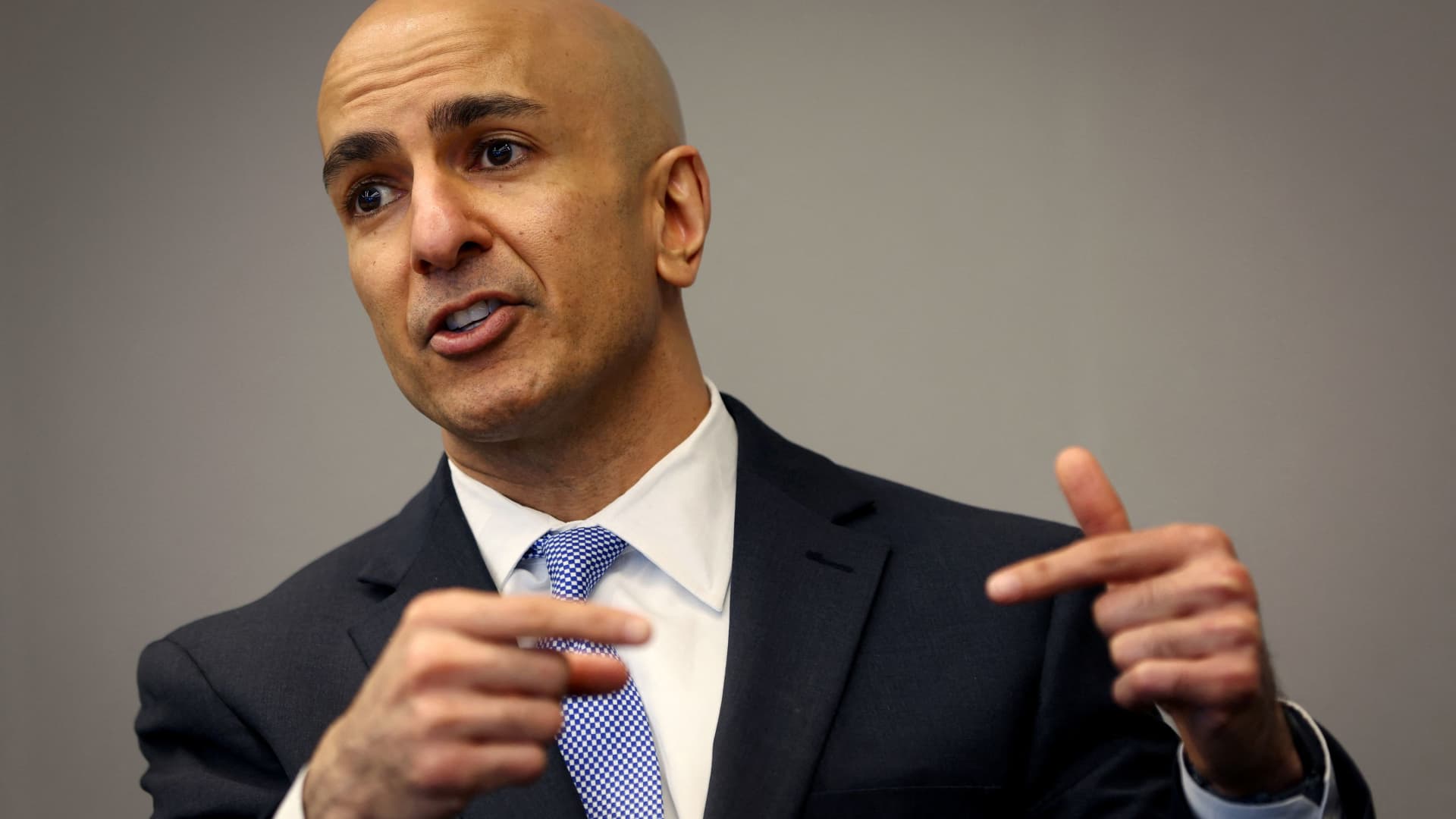Products You May Like
Minneapolis Federal Reserve President Neel Kashkari said Wednesday that he expects the central bank to cut rates only a few times this year, contrary to market expectations.
“Sitting here today, I would say, two or three cuts would seem to be appropriate for me right now,” he said during a CNBC “Squawk Box” interview. “But again, I don’t want to prejudge things, but that’s, that’s my gut, based on the data we have so far.”
Markets have been pricing in an aggressive path this year for the Fed, with the first cut happening as soon as May and five total quarter percentage point reductions happening before the end of the year, according to the CME Group’s FedWatch measure of futures pricing.
However, multiple Fed officials have been pushing back on that narrative. Fed Chair Jerome Powell a week ago and again during a “60 Minutes” interview that aired Sunday CBS all but completely took a March cut off the table and said he expects policymakers to move carefully as they measure the progress of inflation against broader economic growth.
“We just need to look at the actual inflation data to guide us,” Kashkari said. “So far, the data has been resoundingly positive. I hope it continues. And then the question will simply be, at what pace do we then start to adjust rates back down?”
He added that there are “compelling arguments to suggest we could be in a longer, higher rate environment going forward.”
Kashkari is a nonvoting member this year on the rate-setting Federal Open Market Committee.
Earlier this week, he penned an essay that ran on the Minneapolis Fed site when he suggested that the real fed funds rate when adjusted for inflation may not be as high as it looks. In a series of hikes that ran from March 2022 to July 2023, the FOMC took its benchmark overnight borrowing rate from near zero to a target range between 5.25%-5.5%, the highest in 23 years.
However, economic data has held solid during that time. Kashkari said the trend indicates that interest rates may not be exerting as much pressure on the economy as expected. Labor market growth has held strong as consumers continue to spend.
“That’s all really good news, and that tells me maybe monetary policy is not putting as much downward pressure on demand as we would otherwise think,” he said. “That gives us more time to access that data before we start reducing interest rates. So I think this is a good problem to have.”
There are multiple Fed speakers during the day. This story will be updated to reflect other developments.
